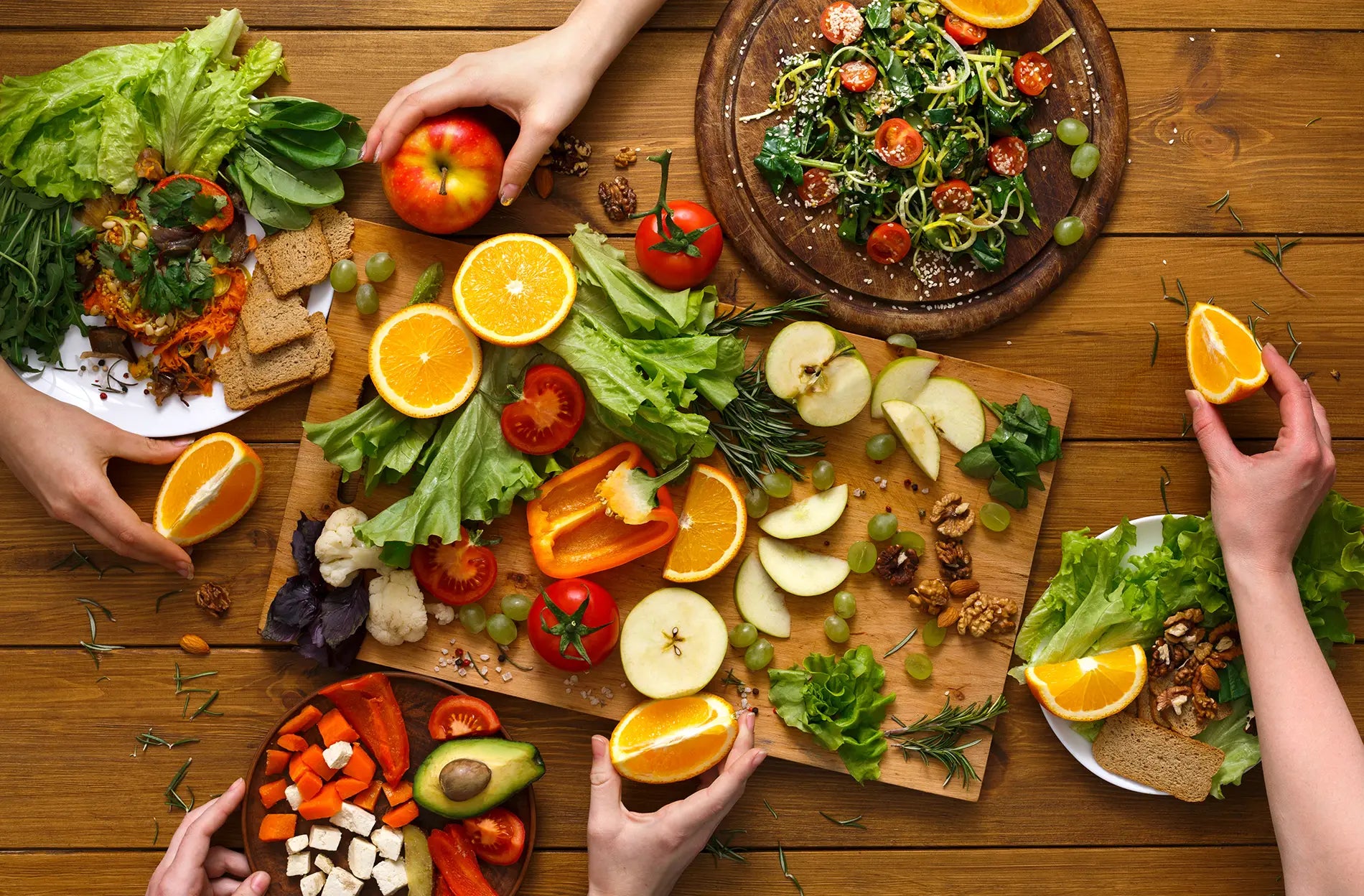Traveling is an incredible experience, but let's be honest: it can be a major challenge to maintain healthy eating habits on the road. Between airport food courts, gas station snacks, and the temptation of vacation treats, it's easy to fall off track.
As passionate travelers, we've learned that the secret to eating well on the go isn't about restriction; it's about smart preparation. Here are our 7 practical tips for fueling your adventures with healthy, delicious food.
1. Pack Your Own "Travel Pantry"
This is the single most effective strategy. Dedicating a small part of your luggage to healthy, non-perishable snacks gives you complete control and saves you from making poor choices when you're hungry and options are limited.
- What to Pack: Think protein-rich and fiber-filled. Good options include nuts, seeds, protein bars, jerky, and individual packets of oatmeal or nut butter.
- The Right Organizer: Don't let your snacks get crushed at the bottom of your bag. Using a dedicated organizer or packing cube for your food keeps everything neat and accessible.
2. Hydration is Non-Negotiable
It's easy to mistake thirst for hunger, especially when flying. Dehydration can lead to fatigue and headaches. The non-profit Academy of Nutrition and Dietetics has great tips on staying hydrated while traveling. The simple solution is to always have water on hand.
- The Tool: Carry an empty, reusable water bottle through airport security and fill it up at a water fountain on the other side. A bottle with a built-in filter can give you extra peace of mind when filling up in new places.
3. Master the Art of the Healthy Road Trip
Road trips can be a minefield of fast food and gas station candy. A little prep turns your car into a healthy haven.
- The Setup: A quality portable cooler is your best friend. Pack it with healthy options like Greek yogurt, string cheese, pre-cut veggies with hummus, and hard-boiled eggs.
- Our Recommendation: A portable cooler bag keeps everything fresh for hours, giving you delicious, healthy options at every rest stop.
4. Research Your Destination's Food Scene
Before you leave, do a little digital scouting. Use apps like Yelp or Google Maps to find grocery stores, farmers' markets, or restaurants with healthy options near your hotel. Having a plan prevents you from having to make last-minute, unhealthy decisions.
5. Start Your Day with Intention
The old advice was to always eat a big breakfast, but modern health wisdom offers a more flexible and effective approach for maintaining energy while traveling.
-
Savory Over Sweet: This is the most important rule. As author Jessie Inchauspé (Glucose Goddess) recommends, starting your day with a meal centered on protein and healthy fats, like eggs, avocado, or Greek yogurt, prevents a sharp glucose spike and the inevitable energy crash that follows. A savory breakfast provides stable, long-lasting energy for a day of sightseeing, a strategy supported by health experts at Johns Hopkins Medicine who explain the benefits of a high-protein breakfast. In contrast, a typical hotel breakfast of pastries, sugary cereals, or juice can leave you feeling tired by mid-morning.
-
Consider Your Timing: Many seasoned travelers find that extending their overnight fast (a practice known as intermittent fasting) and eating their first meal later in the morning provides more mental clarity and sustained energy. However, it's important to note that fasting can affect people differently. Some research suggests that longer fasts can create more hormonal stress for women than for men.
-
The Traveler's Takeaway: The ultimate advice is to listen to your body. Whether you eat at 7 AM or 11 AM, focus on making that first meal savory and protein-rich. If you're using your "travel pantry," a packet of plain oatmeal mixed with a scoop of protein powder or a handful of nuts is a far better choice than a sugary granola bar.
6. Follow the 80/20 Rule
Healthy travel doesn't mean you can't indulge! The 80/20 rule is a great guideline: focus on eating nutritious, whole foods 80% of the time, and give yourself the freedom to enjoy the local specialties and treats the other 20% of the time. This makes healthy eating sustainable and enjoyable, not restrictive.
7. Listen to Your Body
Travel disrupts our normal routines. Pay attention to your body's signals. Eat when you're hungry, stop when you're full, and prioritize rest. Sometimes the healthiest choice you can make is simply getting a good night's sleep.
Check this video for some great healthy travel snack ideas:







Share: